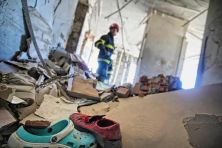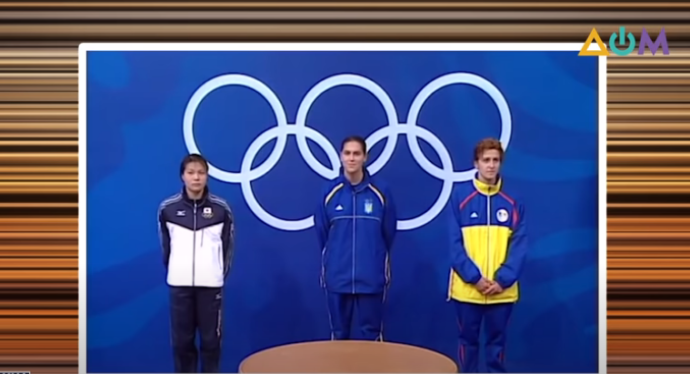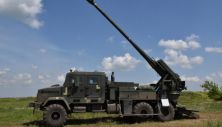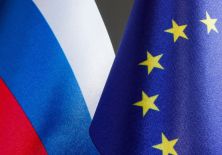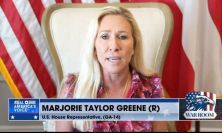The year 2000 marked the rise in price of bread and the total number of unemployed made 3 million. Other notable things and events were payphones and cellular communications, the parliamentary crisis and the recent visit of the U.S. President Bill Clinton. The disappearance of journalist Georgy Gongadze, the well-known “cassette scandal” and two Olympic “golds” of Yana Klochkova – this is what this year was also characterized by.
We tell about it in the new issue of the documentary series “30 years of Independence” on the UA TV channel.
One should bay a lot of money for the mobile packages in 2000, and a cell-phone itself cost a hundred dollars. And although the technology was rapidly becoming obsolete, it was this year that the phone appeared which later became a legendary piece – “Nokia 3310”.
St. Michael’s Golden-Domed Monastery in 2000 is a completely new tourist location, it was opened only last year after complete restoration, because there was a park on the site of the temple, completely demolished by the Bolsheviks in 1930s. The impressive photogenicity of the new building makes this place popular not only among tourists – the cathedral became the background for concerts and holidays. But the first to appreciate the place was a VIP foreign guest – U.S. President Bill Clinton.
The main purpose of his visit was talks on closing the Chornobyl nuclear power plant. The United States has allocated almost USD 80 million for this.
Besides, in 2000, swimmer Yana Klochkova won two gold medals at the Olympic Games in Sydney. The athlete not only came first, but also broke two records at once – Olympic and the world ones – she took the distance of 400 meters in 33.59 seconds.
“The year began with a de facto coup in parliament” – says Volodymyr Chemerys, co-ordinator of the “Ukraine Without Kuchma” campaign.
The all-Ukrainian referendum initiated by Leonid Kuchma contributed to the parliamentary crisis. According to the plan, its results were to significantly expand the powers of the head of state.
Four issues were put to a referendum: granting the president the right to dissolve the Verkhovna Rada if it did not form a parliamentary majority within a month or did not approve the government’s budget within three months; reduction of the total number of deputies in the Verkhovna Rada from 450 to 300; the need to form a bicameral parliament; the abolition of parliamentary immunity.
Opponents of the referendum were convinced that it was Kuchma’s attempt to usurp all power.
The referendum itself took place on April 16. Voter turnout was over 80%. This did not even happen in the elections.
The results were planned to be implemented in autumn 2000. However, due to disappearance of journalist Georgy Gongadze, the further events made it impossible to implement any result of the referendum.
